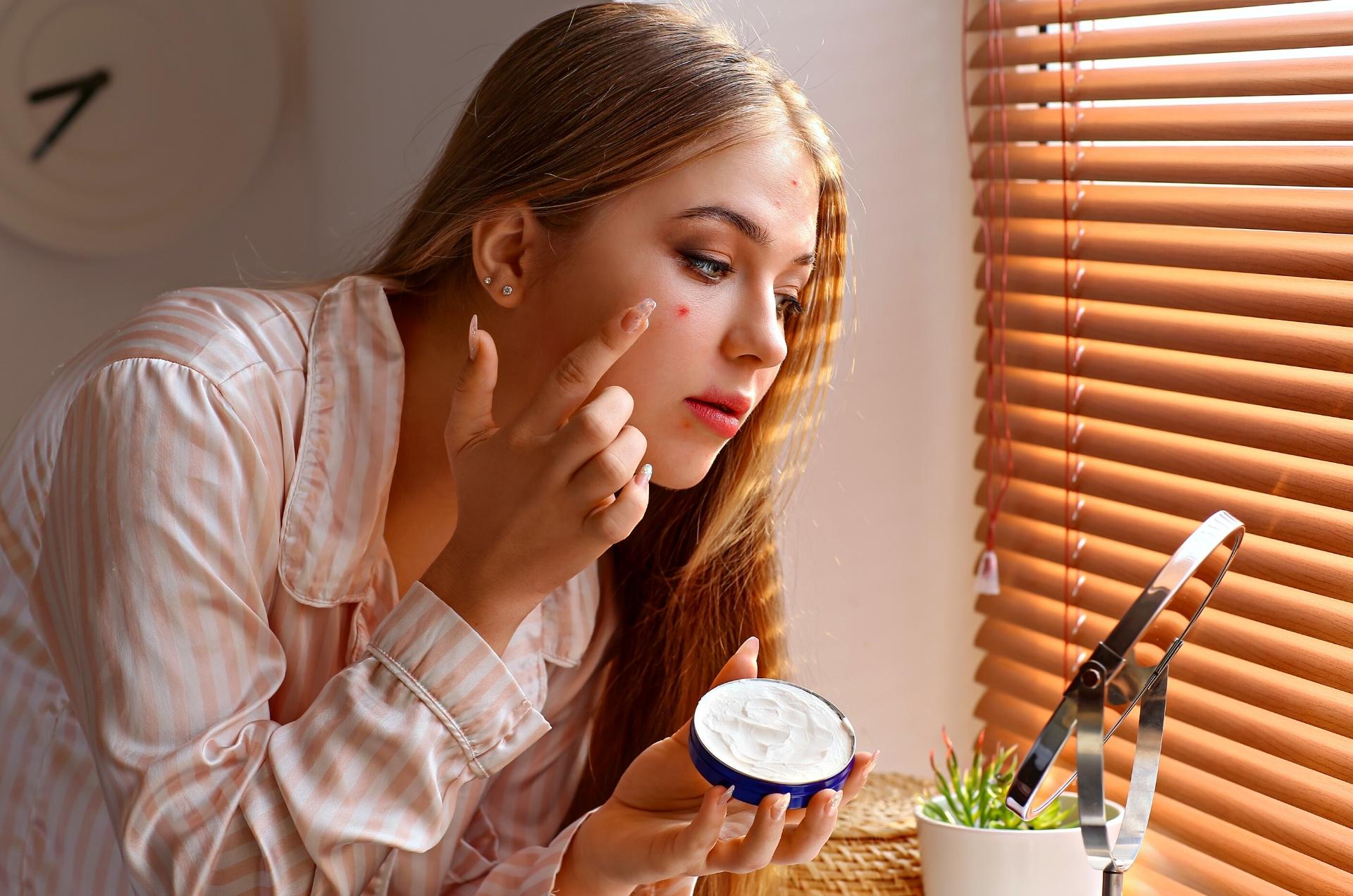Everyone wants glowing, flawless skin, but for most of us who were not blessed with naturally perfect genes, it’s hard to get, especially when you have skin conditions like acne to fight along the way. People think that glowing skin can make a good presence give positive compliments.
Everyone has several skin problems like dry skin, oily skin, bronchitis, wrinkles, and sunburn, and the most problematic one is pimples. It was experienced by most of the people. It’s estimated that 80% of people ages 11-30 will have at least a mild form of acne, but most people are affected by it at some stage of life.
A pimple starts when the skin’s pores get clogged with a type of oil called sebum, which normally lubricates the skin and hair.
Here are some remedies to follow
Properly wash Face
To prevent pimples, it’s essential to wash your face to remove dirt and oil. Watching your face too much in a day can also make pimples worse.
Dr. Anar Milkailove, MD, suggests using cleansers that are sulfate-free, fragrance-free, and gentle enough for twice-daily use, don’t use harsh physical scrubs or dying foaming cleansers.
“Also Read: Amazon Fresh VS Amazon Pantry what’s different and how they work“
Stop using pimple-causing products
These pimple products don’t need a prescription. Most face products contain benzoyl, peroxide, salicylic acid, glycolic acid, or lactic acid. THey curb bacteria and cause drying, which helps control oil in the face and start with small amounts at first. Then you can adjust which part is better for your skin.
Another option is a new OTC retinoid gel (Differin 0.1% gel), preventing pimples from forming.
Keep your hands off your face
Avoid touching your cheeks, forehead, chin areas, or also avoid rubbing in that area from your hands. You can spread bacteria and irritate the already inflamed facial skin. Never pop pimples with your fingers; it can lead to an infection and scary.
Stay out of the sun
The sun’s ultraviolet rays can increase redness and inflammation and can also cause post-inflammatory hyperpigmentation (dark discoloration). Some pimple-protecting medications may make your skin more sensitive to sunlight. Do not try going out on a sunny day or between 10 A.M to 4 A.M; use sunscreen, wear full clothes that can cover your open parts, whether your pimples or not. It’s essential to apply sunscreen with 6% Zinc oxide or higher and SPF 30 or higher at least 20 minutes before sun exposure.
Avoid eating a specific type of food
Somewhere your diet can be a factor for forming pimples. Processed food, dairy products, refined sugar, and alcohol are the culprits of causing spots, reducing the intake of these kinds of food that affects your skin badly.
If reduction doesn’t seem to be the solution to pimples, you can try the Elimination diet to more clearly identify the cause. Typically, cut out gluten, eggs, soy, junk food, and alcohol for 23 days. You can start introducing the good back in your diet, one at a time; this allows you to identify if any of these foods are acne triggers for you.
“Also Read: Ten Tips for a Healthier Life with a Busy Schedule“
Stress-busting activities can help
Stress doesn’t cause pimples, but it may make them worse. A research shows that your body produces more oil-stimulating hormones that affect your skin when you are stressed.
Some options that help to manage your stress:-
- Yoga
- Meditation
- Journaling
- Massage
- Aromatherapy
- Exercise
Know your skin type
Knowing your skin type is generally very important and helpful because you get to know what to use and what to avoid. You can also use the following parameters to identify which is the skin type you may have:-
Dry: your skin deals flaky and tight.
Oily: your skin tends to look shiny.
Combination: you have both dry and oily areas.
Use Chemical-free moisturizer
The moisturiser helps to hydrate your skin; even if you have pimples, it is essential to apply moisturiser because sometimes the skin gets too dry, mainly in the winter season.
“Also Read: Vitamins & Minerals You Need for a Healthy Immune System“
Many moisturisers contain synthetic oil fragrances that will irritate your skin. Be sure before taking moisturiser that what ingredients it contains check that it’s fragrance-free or non-comedogenic.
Stay hydrated
If you are dehydrated, your body produces more oil glands. Dehydration gives your skin a pale and dull appearance and promotes inflammation and redness.
Keep your body well-hydrated. Drink at least 8-ounce glasses of water each day.
Use Antibiotics
Your Dermatologist can prescribe antibiotics to help to reduce inflammation and bacteria on your skin. They are both available in topical and oral forms and work by reducing the number of propionibacterium acnes bacteria on your skin.
Conclusion
Everyone gets pimples, and it’s normal. Many factors cause pimples like genetics, junk food, hormone imbalance, stress, etc. Some medications may even trigger a breakout. Pimples are annoying. At their worst, they may cause skin permanently rough and give severe anxiety and depression.
Always remember to eat healthily, which is good for your skin ( warm water, fruits, green leafy vegetables), drink more water, do yoga, or take a sound sleep.











